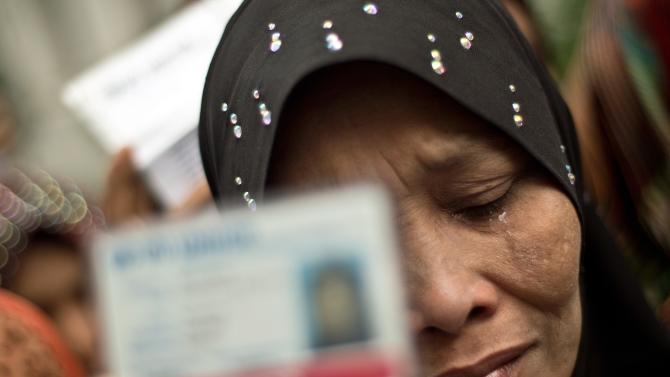The latest tactics of arbitrary arrests, tortures, detentions and killings of Rohingya innocent people at Maungdaw Township in Arakan State, with false and fabricated allegation has become the daily phenomenon of President Thein Sein's regime and his accomplices.
Since September last week, the BGP personnel arrested more than 100 Rohingya villagers (including Maulanas, Hafezi Quran, students. women and even minor boys ) with false and fabricated case in Maungdaw Township to take avenge who did not participate in so-called population data collection. However, the concerned authorities have been trying to frame case against them implicating with Rohingya Solidarity Organization (RSO), which was not existed in Burma many years ago.
Every night, the BGP personnel went to Rohingya villages and tried to arrest the villagers, so the Rohingya villagers are not able to stay in their homes because of arbitrary arrest of BGP. Some instances are as follows:
On October 18, at night, a group of BGP accompanied by some local Rakhine went to Singiri village of Lone Don village tract of Maungdaw north, and tried to arrest Rohingya villagers; but they failed as the Rohingyas villagers fled from the village. The BGP wants to arrest them because they did not take part in so-called population data collection.
Besides, the same night, they entered the Mezan Pru Arabic Madrasa, which has been closed since 2012, after the violence between Rakhine and Rohingya communities to comb people to arrest, but, none was found inside it.
In addition, the BGP also tried to arrest the villagers that went to Mosque for Ashr (night praying at 8:00pm ), but none was arrested because of fleeing from the scene sensing the presence of BGP personnel.
Again, on October 17, another group of BGP – more than 200 BGP personnel- went to Nyaung Chaung (Kadir Bill) village and arrested 7 villagers without giving any reason, but other villagers were fleeing from the village. The 7 arrestees were severely tortured by BGP personnel; of them one villager named Humaun Khobir (30), son of Yousuf is on critical condition. Now, he is taking treatment from local quacks. Nearly, all his teeth had been broken by the torture of BGP personnel. However, later, they all were released. They had been tortured by BGP intentionally.
On October 5, Farid Alam (35) hailed from Aung Zan village of Baukshu Pwe Yah village of Maungdaw north was arrested and killed by BGP personnel and thrown the dead body into river. He was arrested with false allegation of having links with RSO.
On October 9, a Maulana named Nazir (35), son of Jalal Ahmed, hailed from Kawar Bill (Kyi Kan Pyin) village of Maungdaw Township was arrested by BGP personnel from the road, at about 7:00 pm while he was going to his home from Kollizabaga village under Butkargonanah village track by bicycle. After arrest, he was severely tortured and was released.
On October 10, nine villagers including five Madrasa students were arrested by BGP from Maung Nama Gyi village of Maungdaw north. At present, they are detained at Hluntin Headquarters of Maungdaw 4 miles.
On October 13, four villagers including a 11-year old boy were arrested from Kwanthipin village of Maungdaw north by BGP personnel without giving any reason. They are identified as—-Hashim Ullah (19), Mohamed Allam (30), Farooq (22), and Sayed Alam(11).
On September 14: five villagers from Area No.5, twelve villagers from Balu Khali (Thee Chaung) village of Powet Chaung village tract, on September 20: seven villagers from Kyauk Hla Gaar village; 10 villagers from Kawar Bill, and on September 27: some villagers from Tolatoli, Wet Kin Rwa, Padaka Rwa Thai, Kalar Defa and Chon Gaung of Maungdaw north were arrested by BGP personnel.
The 1982 Citizenship Law was intentionally created by late Dictatorship General U Ne Win to exclude the Muslim Rohingyas from Burma citizenship, rendering them stateless and without legal and civil rights. At present, Burmese Central government, Arakan State government and Rakhine opposition party leaders are also influentially forcing the Rohingya ethnic minority to register as "Bengali" instead of as "Rohingya" in the current
National citizenship verification process statewide.
At present, the Burmese government calls for change with a proposed "Rakhine State Action Plan." Its means to attempt to address the Rohingyas only further institutionalizes its discrimination against them.
As a result, people are not sleeping in their homes getting out of their homes, watching the BGP personnel when they will come. The villagers in Maungdaw Township are passing their nights and days with fear.
When the Rohingya community will be freed from the yoke of Burmese government





